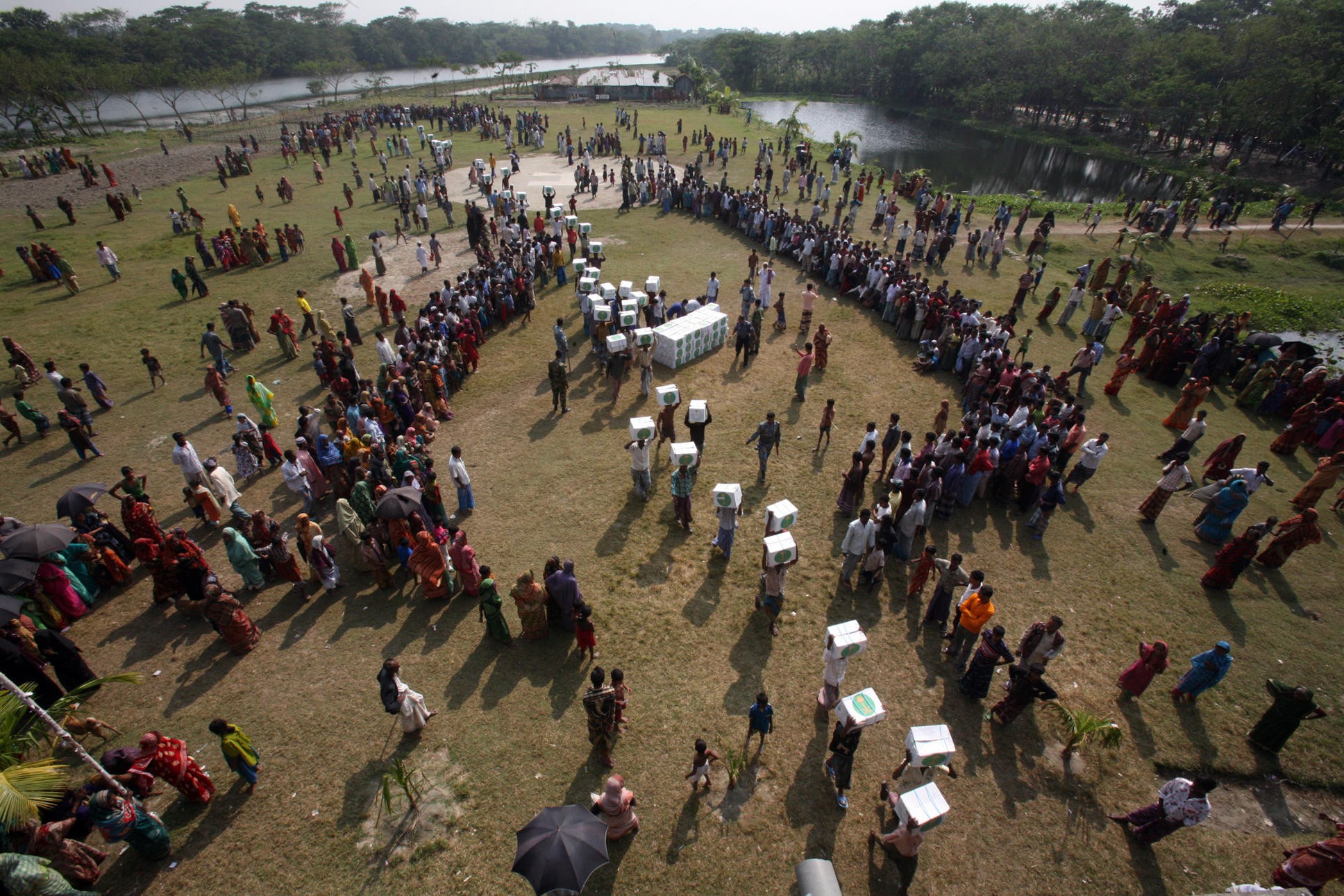Comment:
There is no denying the 'humanitarian' enterprise is at a crossroads.
As the forum chairs have so eloquently reminded us, the issues are both urgent and multifaceted: the decline of foreign aid budgets, the rise of defence budgets, the unwillingness of the nuclear armed states and their allies to take part in the current negotiations to ban nuclear wepons, and a general failure to prevent, anticipate and adequately respond to humanitarian emergencies.
Before we can suggest possible remedies, it seems to me, we need to diagnose the nature of our ailment. Where does the problem lie? With political leaders? Our political and legal institutions? Our media? Multilateral agencies? Or, the community at large? I would be particularly interested if the forum chairs and panellists could share their insights on this question.
The second and related question is this: which stakeholders have strategic leverage? If humanitarian values are under attack, who might be able to take the kinds of initative that could in due course reverse the current tide?
I realise that these are extremely challenging, perhaps unanswerable questions. But to pose them is to begin the demanding task of reimagining and gradually reshaping the future.











Opening Comments From Chairs
Why is there a lack humanitarian action when and where it is most needed?
We already know needs are at record levels, but the humanitarian response effort remains consistently under-resourced and at times, highly politicised. The recent prioritisation of defence spending for some of the world’s wealthiest nations, with foreign aid one of its biggest causalities, will lead to humanitarian crises to further worsen.
But is the tradition way of responding going to save lives anyway? It’s almost 12 months since the inaugural World Humanitarian Summit. One of the key questions from the WHS is how does the humanitarian community make the Grand Bargain a reality? The Grand Bargain’s purpose is to leverage off the diverse expertise and experience of the global humanitarian community so we can anticipate and prepare for a crisis. The Grand Bargain’s core is the need to ‘work together efficiently, transparently and harmoniously with new and existing partners...’ so we can deliver assistance and protection to the world’s most vulnerable. Is this possible to achieve if the worlds super powers are continuing to ignore the necessity of foreign aid and working collaboratively to achieve global peace and security?
Take the United States. President Trump has announced his budget push to increase military spending by $US54billion ($70 billion). This would see a 9% increase in military spending from last fiscal year of $US584 billion ($759 billion). The increase in military spending would result in substantial cuts to foreign aid. As predicted, international development is not a high priority for the Trump administration. However, the cuts of foreign aid will make America unsafe. Investing in foreign aid helps tackle the injustice and poverty that drives extremism and conflict - the same extremism and conflict on which Trump wants to spend $US603billion.
Yemen is now classified the world’s worst humanitarian crisis, with the country on the verge of famine, yet it never even makes the nightly news. With children starving to death, and 7 million people requiring emergency food assistance, Australia does not allocate any of its foreign aid budget to Yemen. South Sudan, Somalia, and north-eastern Nigeria are also experiencing famines. The Australian Government recently announced $20 million in assistance for the famine crises, yet Yemen is still excluded, with the funding allocated to South Sudan and Somalia. Australia recently cut their contribution to the World Food Program by $7million. Australia’s 2016-2017 aid budget is currently $3.83 billion, the least generous in its history.
With global tensions high, Australia is continuing to undermine moves towards a treaty that would ban nuclear weapons. In October 2016, Australia voted against the treaty, the aim of which is to prohibit nuclear weapons that will eventually lead to their elimination. The reason? Australia believes disarmament can only occur after it has happened – disarmament can only occur when the threat of nuclear weapons no longer exists. Australia is waiting for a perfect world. Australia will not be present at the global summit in March, with commentators accusing Australia of taking orders from Trump.
The above identifies a twin challenge. There is an assault on humanitarian values, and a reduced confidence in crisis prevention and response. More than ever, there is a need for an unprecedented alliance between humanitarian minded governments and NGOs (both national and international), and the Red Cross/Red Crescent to assert the importance of basic humanitarian values. It is a time to put aside institutional imperatives to assert basic values. If there is not widespread acceptance and embrace of these basic values then there is little likelihood of the necessary change occurring.
There are possibilities inherent in having a UN Secretary-General with extensive first-hand experience of humanitarian need and of the humanitarian system with all its strengths and weaknesses. There are things that can be done which can improve the quality of humanitarian response and hence indirectly enhance confidence in such response. A key example is the call for localisation of aid. A localised approach will result in increased strength and capacity of local actors and increased sustainability of development activities. Local organisations and communities are best placed to respond quickly and effectively to a disaster. Localisation is an opportunity to improve the understanding of, and support for, principled humanitarian action when responding to a humanitarian crisis.
Can the Grand Bargain become a meaningful mechanism to foster confidence in humanitarian response? Or is a more comprehensive transformation of the system needed?